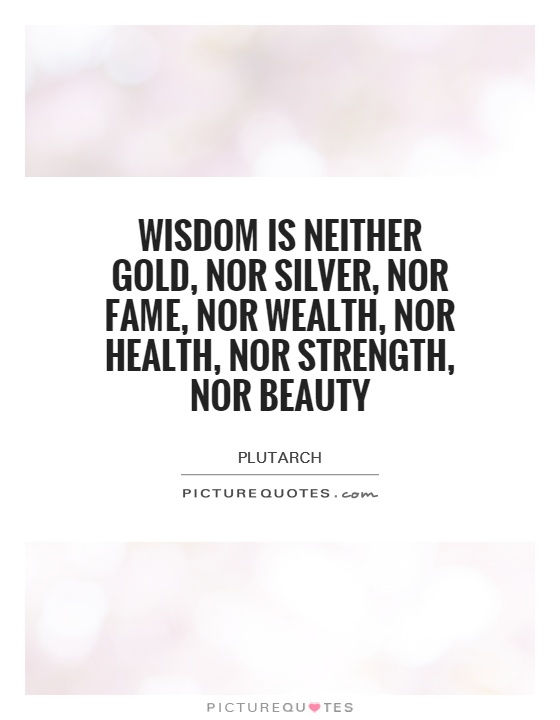Wisdom is neither gold, nor silver, nor fame, nor wealth, nor health, nor strength, nor beauty

R B QuotesStrength Health QuotesWealth And Beauty QuotesWealth And Fame QuotesWisdom And Beauty QuotesWisdom And Strength Quotes
Wisdom is neither gold, nor silver, nor fame, nor wealth, nor health, nor strength, nor beauty
Plutarch, the ancient Greek philosopher and biographer, believed that true wisdom was not to be found in material possessions or physical attributes. In his writings, he emphasized the importance of cultivating wisdom through knowledge, virtue, and self-awareness.Plutarch understood that many people in society often equated wisdom with wealth, fame, or physical beauty. However, he argued that these external markers of success were superficial and fleeting. True wisdom, according to Plutarch, was a deeper understanding of oneself and the world around them.
For Plutarch, wisdom was not something that could be bought or acquired through external means. It was a state of mind that required introspection, critical thinking, and a commitment to personal growth. He believed that true wisdom came from a lifelong pursuit of knowledge and self-improvement.
Plutarch's teachings on wisdom were influenced by his study of ancient Greek philosophy, particularly the works of Socrates, Plato, and Aristotle. These philosophers emphasized the importance of virtue, ethics, and self-discipline in the pursuit of wisdom. Plutarch believed that true wisdom could only be achieved through a combination of intellectual inquiry and moral integrity.












 Friendship Quotes
Friendship Quotes Love Quotes
Love Quotes Life Quotes
Life Quotes Funny Quotes
Funny Quotes Motivational Quotes
Motivational Quotes Inspirational Quotes
Inspirational Quotes